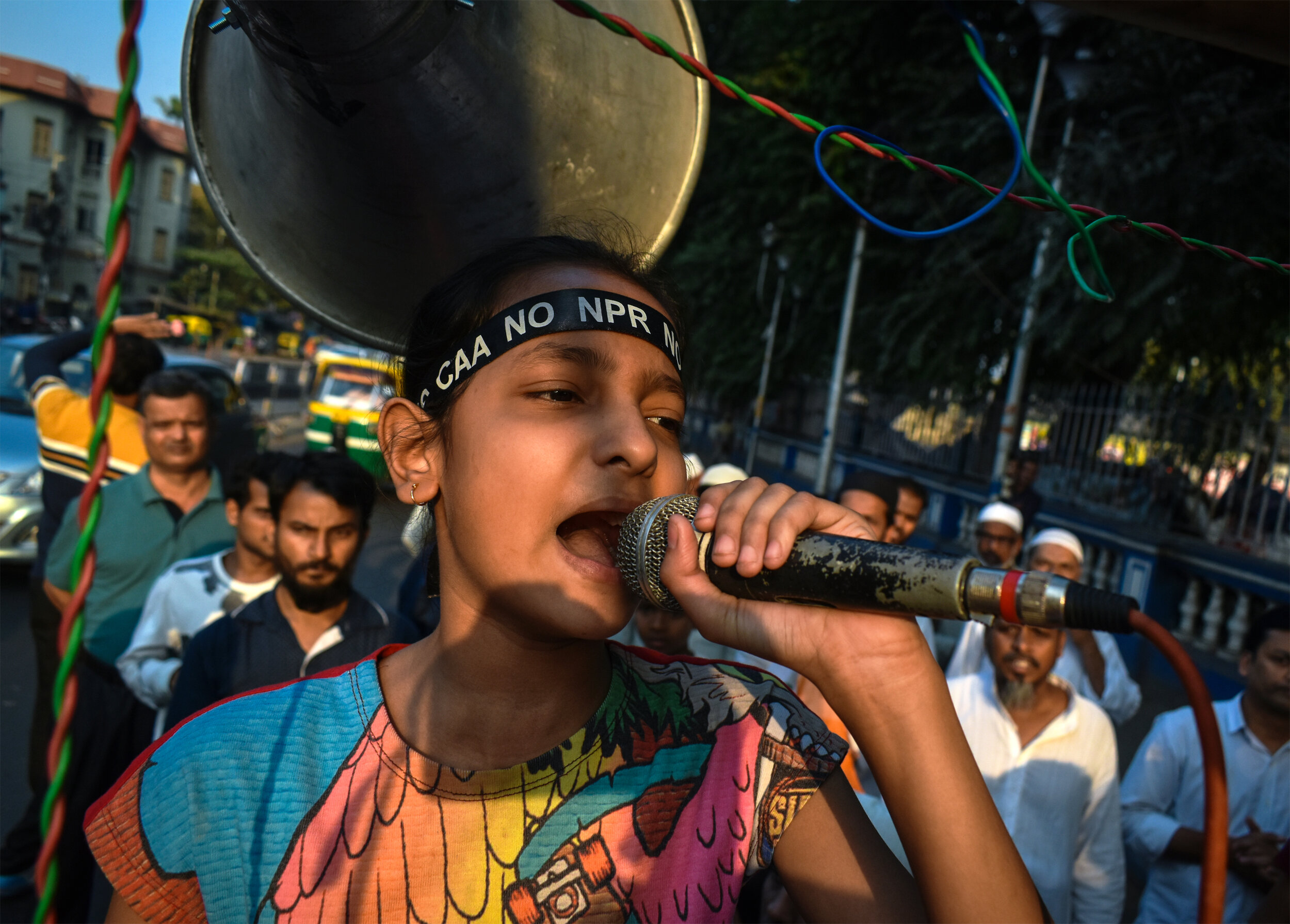22 Parliamentarians send timely letter to Modi government about targeting of religious minorities
A young girl shouting slogans and leading the NRC and CAA protest rally in Kolkata, India. Editorial credit: papai / Shutterstock.com
The world’s largest democracy meets with more international criticism after two dozen IPPFoRB parliamentarians from 17 different countries around the world sign a strongly worded two-page letter addressed to the Indian PM Narendra Modi about violations of religious freedoms amongst growing mob violence, the new Citizenship Act and restrictions in Kashmir.
The letter comments on India’s ‘rich history of respecting religious pluralism and protecting this diversity’ while expressing deep concerns about ‘recent developments in India that have had a negative impact on the freedom of religion or belief for India’s religious minority communities’.
‘’The present Indian administration has forgotten their international human rights obligations. Our letter is one of the many efforts from the international community to remind them that the world is watching’’, asserted David Anderson, former Canadian MP and Chair of IPPFoRB Steering Committee, one of the signatories of the letter.
The parliamentarians who signed this letter are part of the International Panel of Parliamentarians for Freedom of Religion or Belief (IPPFoRB), and are committed to promoting and protecting the right to freedom of religion or belief for all.
The 22 parliamentarians from Pakistan, Canada, Indonesia, Germany, South Africa, Venezuela and other countries signed this letter in their personal capacity and not as a representative of their government, political party or any other body.
Protestors holding a big size Indian National flag at a protest rally against for the NRC and CAA in Kolkata, India. Editorial credit: papai / Shutterstock.com
Criticizing the Indian authorities on the discriminatory process of updating the National Register of Citizens in Assam in 2019, the letter demands the government to verify that ‘no Indian is disenfranchised simply because of their religious identity’.
‘’A lot has happened in India ever since we first circulated this letter to sign by MPs in late 2019’’, said Anderson. He added, ‘’the new Indian Citizenship Amendment Act (CAA) that formally came about in December 2019 explicitly discriminates against Muslims who are not extended the same rights as other religious groups. It marginalizes them.’’
The letter also pointed to the growing prevalence of mob violence in the country and pressures the Indian government to express a ‘zero-tolerance position for extrajudicial violence’. The letter finds it crucial that the ‘Union government officials work closely with state governments across India to ensure that police are proactive in protecting religious minorities and ensuring that perpetrators are quickly bought to justice.’
Additionally, the letter also touches upon the situation of religious freedom amongst the on-going repression of Indian citizens in Kashmir, a northern state of India. Kashmir has seen varying levels of communication bans, violent beatings and torture by security personnel especially after the region was locked down in August 2019 when the Indian authorities revoked the special status accorded to Indian-administered Kashmir. The letter gives some examples such as the ‘prohibitions on assemblies led to the cancellation of Muharram processes…the restriction on movement limiting the ability to visit mosques…and the shutting of mosques with concerns of anti-government activity’.
At the end of the letter, the parliamentarians invite the Modi government to discussions on improving freedom of religion or belief in the country. ‘’We want to cooperate with Indian MPs just the way we cooperate with MPs from neighbouring countries like Nepal and Pakistan’’, concluded Anderson.


